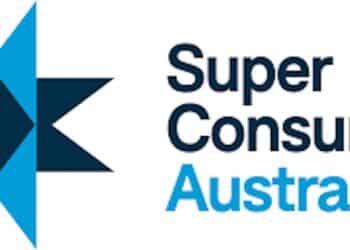In its submission to Treasury on PCG 2025/D5 Payday Super – first year ATO compliance approach, the joint bodies – which includes the SMSF Association, the Australian Bookkeepers Association, Chartered Accountants Australia and New Zealand, CPA Australia, the Institute of Certified Bookkeepers, the Institute of Public Accountants, and The Tax Institute – made several recommendations including the introduction of ATO-led nudge messaging to assist employers and an extended transitional compliance period.
“Given the scale of change and reliance on third-party systems, we strongly recommend extending the transitional compliance period and providing clearer guidance on key concepts such as ‘reasonably practicable’ and Voluntary Disclosure Statements (VDSs),” the submission stated.
“Our recommendations aim to ensure fairness, clarity, and practical support for employers navigating the new pay day super regime.”
The joint bodies recommended that the PCG compliance approach be extended for 24 months from 1 July 2026 to 30 June 2028 or a commitment to review it after the first 12 months.
“The pay day super legislative package only received royal assent on 6 November. As such, employers, intermediaries and funds will only have legislative certainty for a little over seven months before the implementation date of 1 July 2026,” the submission stated.
“Pay day super does not merely represent a change in payment frequency. It introduces new legislative concepts, a new penalty regime and method of reporting shortfalls, and additional Single Touch Payroll (STP) reporting requirements.
“Depending on their situation, employers may be required to update or change software, source a new clearing house, amend cash flow budgets and policies, amend human resources and payroll policies, review employee and contractor agreements, increase staffing, and inform and upskill relevant staff and management.”
It continued that accounting and tax advisers will need to educate clients and assist them with many aspects of the transition. Employers will also need to rely on their chosen software provider, clearing house and other intermediaries updating their systems and processes on time.
“We note that it is the employer who is penalised for delays by third parties, outside the employer’s control. We note that there are approximately 250,0001 employers presently using the Small Business Superannuation Clearing House (SBSCH). All these employers will need to source a new clearing house prior to July 2026,” it stated.
“Given the breadth of changes required by so many impacted stakeholders, we strongly recommend that the proposed compliance approach should apply for the first 24 months. If this is not feasible, we would like to understand the reasoning behind the decision, and request that the ATO commit to considering an extension beyond 30 June 2027 based on employer experiences during the first 12 months.”
The submission also made recommendations regarding the aligning of the “late period” and assessment timing with low- and medium-risk employer expectations.
It called for the definition of the “late period” as ending on the 28th day after the quarter and to ensure no assessments for low- and medium-risk employers commence until the 29th day for the month following the end of the quarter containing the relevant QE day.
Additionally, it called for clarity on SG penalty exposure for low-risk employers and further explanation on the circumstances under which low-risk employers may still face SG penalties, including post-June 2027 actions.
The Joint Bodies is also calling for a more thorough definition of “reasonably practicable” and the provision of clearer guidance on and examples of what constitutes “reasonably practicable” in correcting SG errors.
“Employers who correct errors or underpayments ‘as soon as reasonably practicable’ as described at paragraph 17 and a number of other places will be treated more leniently under the draft PCG. This is reasonably consistent with our recommendation to allow voluntary disclosures and remediation without penalty,” it stated.
“However, the PCG does not provide clarity on what constitutes ‘reasonably practicable,’ and does not guarantee penalty relief. The phrase ‘as soon as is reasonably practicable’ is vague and open to interpretation. To provide employers with certainty, we consider there should be more comprehensive guidance on the requirements for employers in the low-risk zone.
“We recommend that an additional, alternative criterion for the low-risk zone be where the employer can demonstrate that they paid a valid contribution (including sending accurate data) on the QE day. For employers who make all reasonable efforts to comply with the pay day super rules, this would provide certainty that they would be deemed to be in the low-risk zone. We also recommend the inclusion of more practical scenarios particularly in relation to the low- and medium-risk zones — in particular, where delays are caused by other parties.”
The submission has also recommended the implementation of nudge messaging for the period covered by PCG 2025/D5 and the use of STP/MATS data to inform employers about SG timing and system performance during the transition year.
“Given its unique access to SG contribution data, the ATO is well-positioned to inform employers about the timing of their payments. A proposed system of nudge messaging during the transition period specified in PCG 2025/D5 could use insights from the STP/MATS matching process to guide employer behaviour and readiness for Payday Super.,” it stated.
“These messages would help employers assess whether their payment methods, clearing houses, and super funds meet the seven-day requirement, prompting necessary changes before 30 June 2027. They would also serve as reminders of the new pay day super rules, especially for those still operating under pre-June 2026 practices, and alert employers whose contributions are received late about potential high-risk zone exposure.
“Additionally, the ATO would gain valuable data on employer behaviour, processing times, and rejection rates, helping refine the matching program before automated SGC assessments begin. This proactive approach would support a smoother transition to Payday Super, avoiding a chaotic adjustment period, and ensuring systems and employers are aligned by 1 July 2027.”


